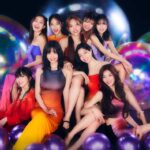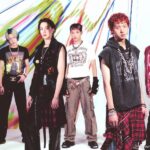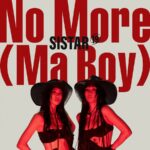
By Jae-Ha Kim
Allure
April 13, 2020
So you’ve gotten into K-pop. Yay! It’s fun, right? You may have even worked your way around the language barrier by reading fan translations and marveling at the overachievers who’re learning to read and write Hangul. But when stans start throwing around words like idol, fighting, and all-kill, are you left scratching your head in confusion? What’s with all the ㅋㅋ comments after BTS‘ Jin posts a dad joke? And why are people buying bongs for upcoming concerts? That’s not even legal. (Or is it?) We’re here to help you out with some K-pop words and phrases that may not be in your vocabulary… yet.
All-kill:
A somewhat sinister phrase for an awesome achievement. An all-kill refers to a song hitting the No. 1 spot on all of the Korean music charts.
Bagel:
This English portmanteau is made from baby-face and glamorous (read: sexy!) body. Though most often used to describe female idols (Bae Suzy), male cutie pies like 2PM’s Nichkhun also fall into this category.
Bias:
Favorite member. (A bias wrecker is your fave’s bandmate who is thisclose to swaying your allegiance.)
Bong:
Noooooooo! We’re not talking about the device used for smoking pot. In K-pop parlance, bong refers to light sticks. TWICE fans’ lights are called the Candy Bong, but Big Bang’s alliteration game is strong with their Bang Bong.
Comeback:
You don’t have to wait years (or decades) for a comeback in K-pop! Each new release is a comeback, complete with teasers, music videos, and often detailed concepts. And though groups can have more than one comeback a year, each is treated like a long-awaited surprise. Fans love it, and it’s honestly one of the most fun treats for K-pop stans.
Fighting:
When you hear your bias say this, don’t worry. They’re not about to throw down. Koreans use this word to show encouragement and support. The English equivalent would be, “Good luck,” but where’s the fun in saying that?
Golden maknae:
Maknae means the youngest. Golden maknae refers to the youngest member of the group who is effortlessly good at everything.
Hi-touch:
A perk for fans who are willing to shell out extra money, hi-touch is K-pop vernacular for a high five. After concerts, fans will get the chance to say a few words as they quickly high-five the group.
Idol:
Once upon a time, Korean singers were called gasu. Today they’re idols.
ㅋㅋ:
Pronounced “kieuk,” this is the Korean equivalent of “ha ha.”
Ment:
K-pop concerts usually run about two to two and a half hours with no opening acts. When they’re not singing and dancing, idols pepper their shows with ments — little speeches to show their appreciation. It’s something to look forward to because while the idols will joke around and make the crowd roar with laughter, they also share touching stories that make many fans weep.
Sasaeng:
Overly invested fans who cross the line and are more akin to stalkers. We’re not talking about asking for an autograph at a fan meeting, but repeatedly invading an idol’s privacy. A German sasaeng bought business class seats on the same flight as TWICE and attempted to give Nayeon a handful of letters he had written.
Visual:
The best-looking in a group full of ridiculously good-looking members.






2 thoughts on “How to Speak K-pop Like a True Fan”